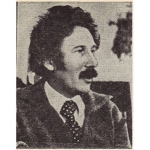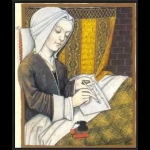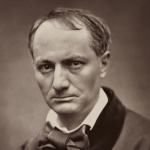I.
I’m trying to spell out a state of amazement,
A sweet dilation, the sway of spirit,
That only finds room in your shape.
They say that
Transposed in our alphabet
A Chinese sentence can turn into
A series of one and the same conjunction.
For instance: “And and. And and and. And and and and.”
This is a genuine transcription of the beautiful poem
And the Yangtze River.”
II.
Well, how many miracles, how many Chinese miracles,
Have I missed this time?
Too shrunk within the heart of Europe,
Stuck to Greek reason,
Spoiled by syllogism,
And born too late for the Far East!
III.
No one gave me a silk scroll as a present
At the time of the Han dynasty,
Much less during the coming ones.
My feet didn’t develop corns on the silk road,
My shadow didn’t pass on the winding way
To take the desert oases in its arms.
I never wrapped my shoulders
In the wavy mantle of the Yellow River.
In 120 B.C.
I didn’t show myself — idiot! —
At the music Chamber.
What melodies I could have heard!
My ear, a shell devoid of the sea’s roar,
Missed the treasure of sounds
Invading north to south.
Would I have still remained
With so many uncertainties?
IV.
I was late to the contest of impromptu poems
And didn’t make libations to the Muse
Along with Wang Xizhi.
I wish I’d seen how they spelled
“The literary spirit and the dragon engravings.”
Humble observer, hidden in a fold of time,
I wish I could participate unseen
In the painting of the world’s first landscape.
It would have included me no doubt
As an accident on the horizon,
A leaf on the sky’s water.
I wish I’d been a judge when the names were checked
Or, lazily lying in the Doctrine of the Great Vehicle,
I wish I’d wandered beyond nature’s limits,
And been struck by the sensation of a universal vacuum.
V.
I wonder if
The five rice measures
Would have finally revealed
The vital principle.
VI.
Can’t you say anything,
Beautifully written character?
The Great Wall fits into you
Like the moon in a cacoon.
Open the silk door a moment
And let this state of amazement in —
Include this lotus flower
In your closed-circuit breath.
Why are you so silent,
When you used to tell me about all these things?


















Comment form: